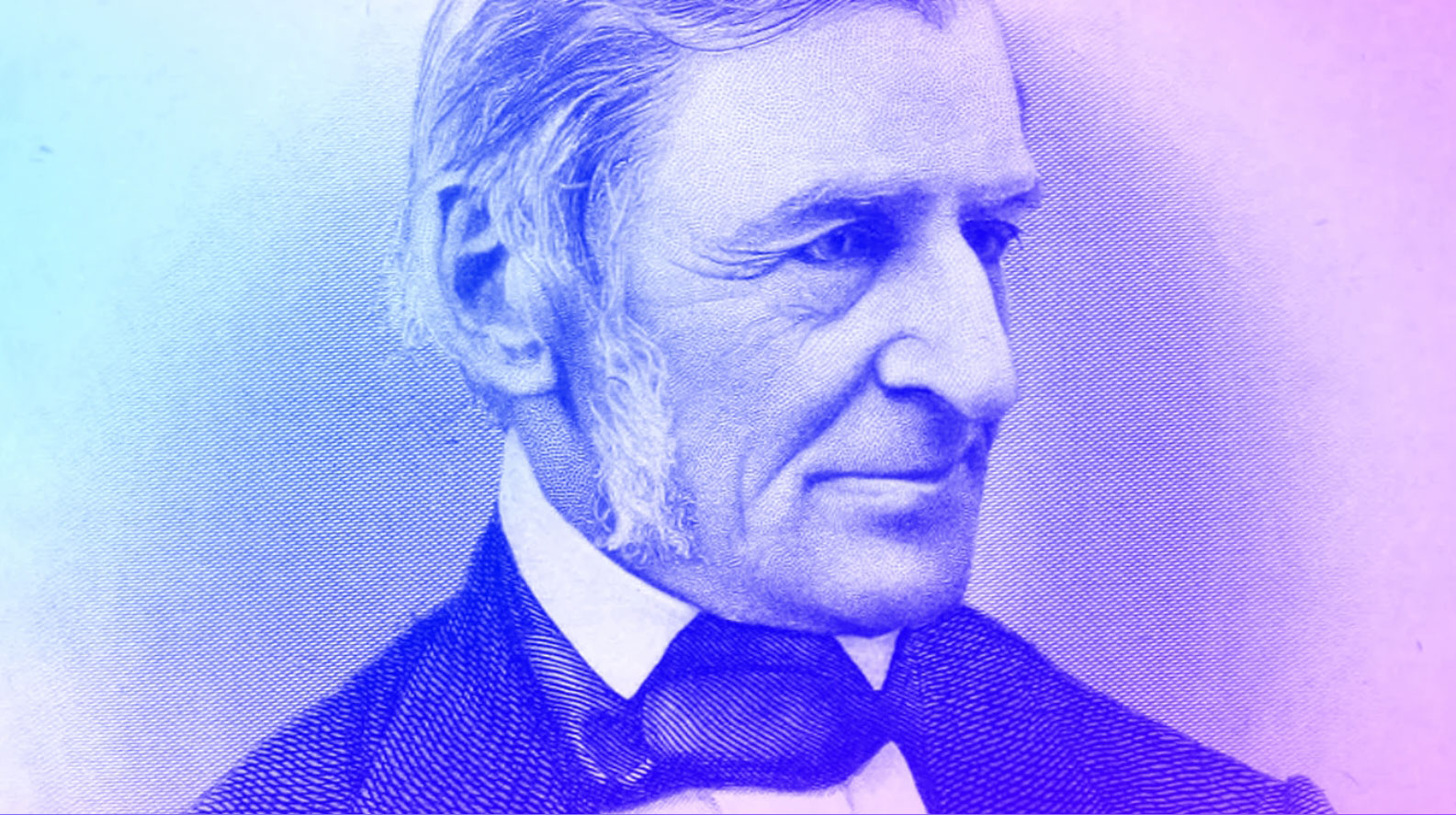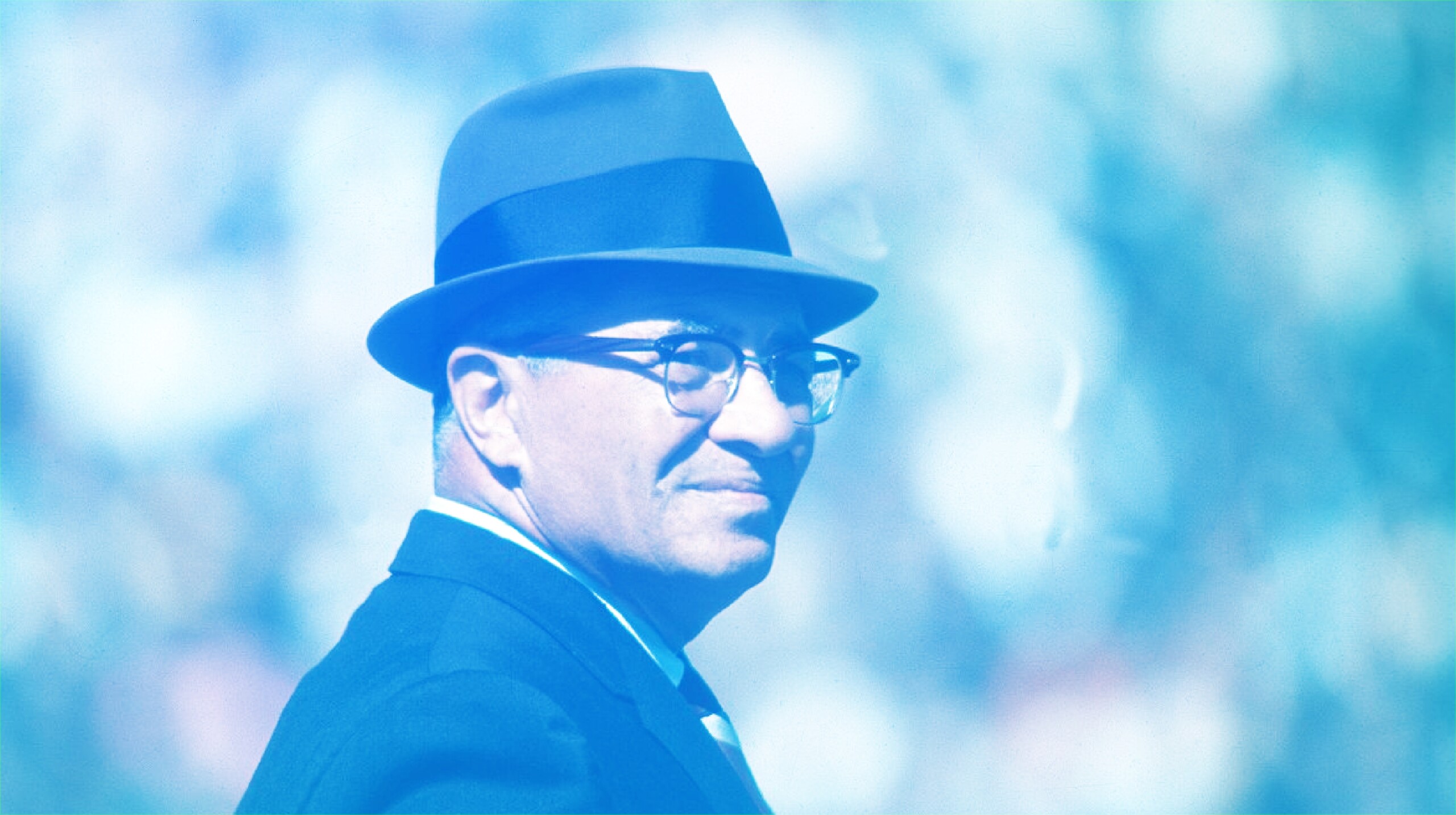by Courtney Campbell
Share
by Courtney Campbell
Share

Entrepreneurs, journalists, musicians and artists alike are in a perpetual pursuit of innovation. Our focus concentrates on the future. Wondering about the past is deemed a waste of time and the present moment is largely overlooked for the feelings of stagnation that accompany it.
Startup founders want to imagine a future that nobody has yet imagined.
CEOs want to scale their businesses in a way that sustains them for years to come.
New solutions, new processes and new operating mechanisms are tested in companies as frequently as new medicines are tested in pharmacies.
What is next? How can you create the future? How can you imagine in a way that nobody has imagined before? Who will break the ground? What will shake the earth?
Often, history and “old thinking” are labeled antiquated and obsolete. But what can we learn from the world’s greatest thinkers and how can we implement this wisdom in today’s world?
Leader of the transcendentalist movement, Ralph Waldo Emerson, can be recognized as a pioneer of innovation. His ideas challenged the existing conditions of the time and continue to transcend time and space. Visionaries and changemakers can leverage his wisdom in the world of business.
Ralph Waldo Emerson: Author or Businessman?
19th century American essayist, philosopher and poet Ralph Waldo Emerson asserts the necessity of individuality and nonconformity in his famous essay, “Self-Reliance.” The essay was written when the United States became an independent country after the Revolutionary War – when the U.S. dangled between what was and what could be.
America had a blank slate – what would they choose to do with it? Would they mimic the ideals of the governments they were newly liberated from or would they blaze their own trail into the future of what could be?
What do Transcendentalists and Entrepreneurs have in Common?
While you don’t sit in post-Revolutionary war America, you have the ability and opportunity to revolutionize the world in your own way. Entrepreneurs find themselves in the exciting position of sculpting the future. Will you mimic the core values and business strategy of established institutions like Apple or Tesla or will you choose to pave your own path?
Ralph Waldo Emerson would advise you to “not go where the path may lead, go instead where there is no path and leave a trail.”
Abandon the status quo, cultivate a culture that is authentic to your organization and build a company that will reverberate through time and space.
How To Channel Your Inner Transcendentalist
As your trusted consultant, Emerson would offer a few tips regarding your company culture strategy.
TIP 1:
“Envy is ignorance, Imitation is Suicide.”
Interpretation: Be Authentic. Create a culture that is authentic and unique to your organization. Look within your own organization, rather than seeking answers outside of it, as you construct your culture.
Your competitive advantage lies within how you operate and execute differently than your competitors. Copying and pasting priorities, behaviors and vision will only serve to create a stale version of what already exists. Creating an authentic culture means allowing your employees to shape and co-create it. Afterall, these are the individuals who will be living your values. Analogously, your leaders must not only “talk the talk” but also “walk the walk.” A gap between what you say and what you do will breach employee and customer trust.
Think about a brand that you love. Patagonia? Ben and Jerry’s? Harley Davidson? Chances are that you love more than just their product. Think about their mission, how they market and the way that they make you feel as a customer. The experience that you have with them aligns with who they are as a brand and how they operate on a tactical level. This authenticity starts on the inside and reverberates all the way out to the customer experience.
TIP 2:
“A foolish consistency is the hobgoblin of little minds, adored by little statesmen and philosophers and divine.”
Interpretation: Challenge Convention. What worked once before, will not necessarily work now – question what is for what could be.
“Because this is the way we have always done it” is never a good answer to a question. Whether you are hoping to change existing behaviors in an established organization or create your company from scratch, it is crucial to create a culture that is safe for examining pre-established norms.
Uber would not exist today if founders Travis Kalanick and Garrett Camp waited for a taxi on a snowy night in 2008 rather than wondering if there was a better way. The company was founded on a simple “what if” question. “What if you could request a ride from your phone?” Imagine if Kalanick’s co-founder responded with “this is just the way it has to be.” Thoughts quickly grow into groundbreaking ideas if given the opportunity and environment to flourish from seed to scale.
TIP 3:
“It is one of the most beautiful compensations of life that no man can sincerely try to help another without helping himself. Serve and thou shall be served.”
Interpretation: Prioritize Employee Experience. Invest in the experience and development of your employees to win a high return on investment towards your business’s success.
When employees have a positive experience at work, performance, productivity, and retention skyrocket. Their experience directly translates into their commitment to your company. Financially, you will save on costly turnover and a reputation of happy employees will attract competitive talent. Serve your employees and your employees will serve you.
Former CEO, Cheryl Bachelder, of Popeyes adopted Emerson’s principles of service to save the company from demise. When she took over in 2007, the franchise was on the brink of bankruptcy, but her takeover resulted in a 45% increase in revenue and a doubling of profit margins. She attributes this massive turnaround to the indoctrination of servant leadership, describing the distinction of a self-interested leader versus one who serves others as the ability to listen. By doing this, you not only hear about people’s problems but also the solutions.
Taking Transcendental Ideas with You
Company culture has long been relied upon to foster an environment of innovation in which great minds can come together and create. What if the secrets to paving the road ahead are kept in the great wisdom of the past? Ralph Waldo Emerson would advise you to root your culture in authenticity, non-conformity and an exceptional employee experience in order to reap long-term benefits and maximize business impact.
Leadership may be one of the most popular topics covered by self-development authors and business coaches. Still, several misconceptions persist in regard to what it takes to be a truly effective leader. In this blog post, we break down some of the most common leadership myths so you can feel more confident about your position
Taking stock of your past and learning from your mistakes is key to growing as a leader and encouraging innovation in your business ventures. Howbridge CEO Jeff Prag discusses 3 key lessons from his own experience. How do you encourage growth in your leadership and innovation in your business? Take stock of your past and
Silos squash potential. At Howbridge, our experience shows that sustainable success sits at the crossroads of three elements: offerings, organizational dynamics and opportunities. In this blog post, we explain the O3 effect and our approach to creating continuous growth. Building a venture is filled with inflection points—none of them easy. But too often, companies face
A Short History In 1997, Netflix Founders Marc Randolph and Reed Hastings felt irritated by Blockbuster’s $40 late return-fee. This frustration led them to the idea of renting DVDs by mail using a subscription model and the seed of what we now know as Netflix was planted. By 2000, Hastings and Randolph offered to sell



